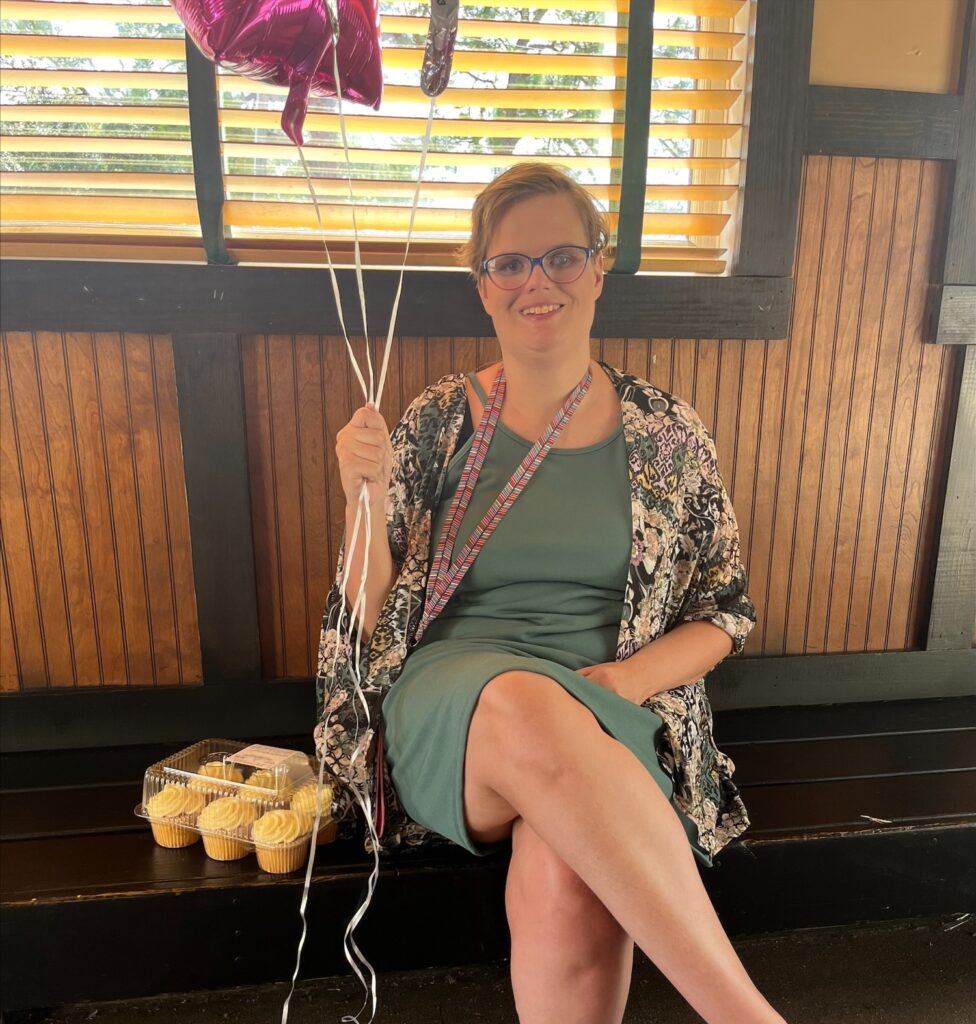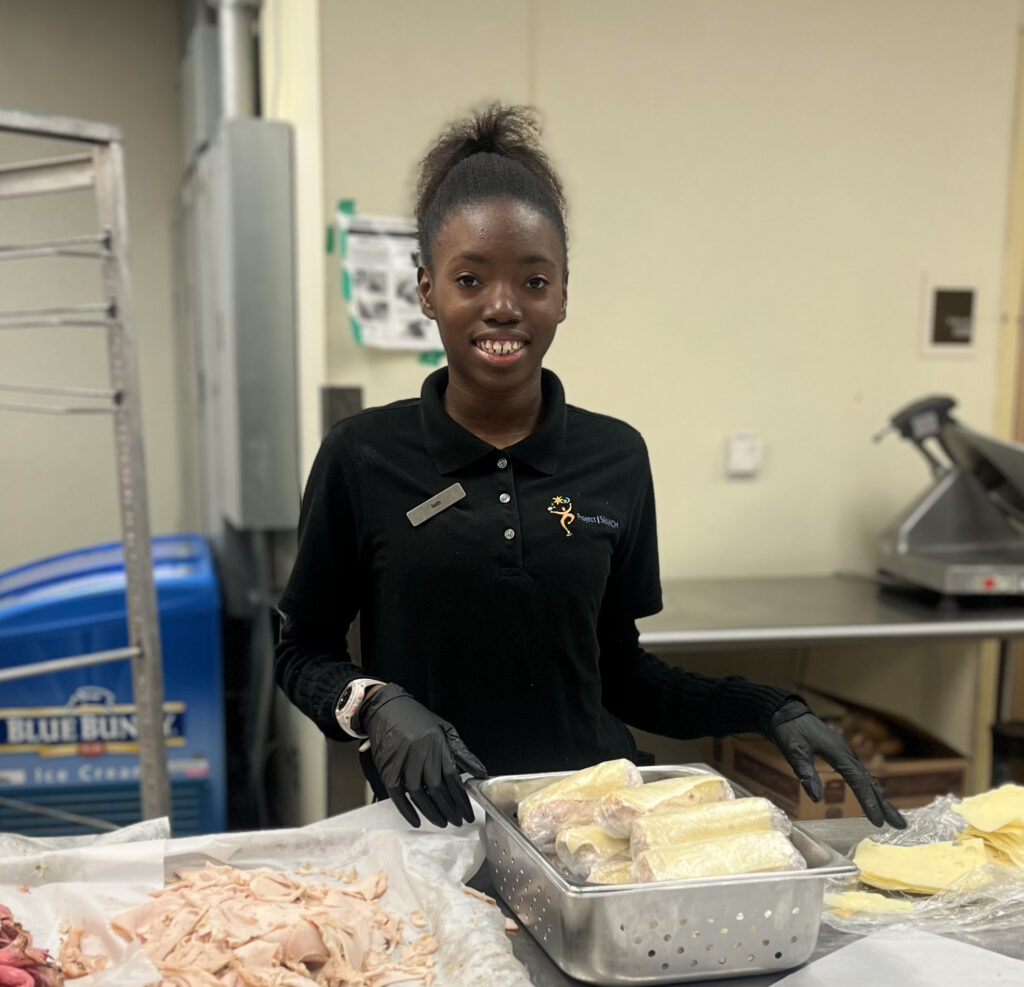When it comes to creating opportunities for individuals with developmental disabilities, Volunteers of America Southeast (VOA Southeast) stands as a shining example of compassion and dedication. Through a person-centered approach, VOA Southeast empowers individuals to live independent, dignified, and fulfilling lives through initiatives, while promoting growth within their communities.
VOA Southeast remains a strong advocate for equity under the Americans with Disabilities Act (ADA), emphasizing the importance of civil rights for all. Through partnerships with local human services agencies and support providers, our organization extends services that cater to various needs, from accommodating physical disabilities to offering in-person or online communications via platforms like Zoom.
Let’s explore how VOA Southeast’s programs and services make a difference, the importance of person-centered care, and how you can help support our mission.
Understanding Developmental Disabilities
Developmental disabilities are a group of conditions that affect an individual’s physical, learning, language, or behavioral abilities. These disabilities, such as autism, intellectual disabilities, brain injuries, or Down syndrome, often begin during childhood and impact everyday activities like learning, communicating, and building relationships.
Supporting individuals with developmental disabilities requires more than just meeting basic needs—it demands understanding their unique strengths, preferences, and goals. Compassionate, tailored care helps them thrive as active and valued members of society.
VOA Southeast has wholeheartedly embraced this vision by fostering a culture of dignity, respect, and inclusion for the individuals it serves.

VOA Southeast’s Person-Centered Approach
At the heart of VOA Southeast’s support is the Person-Centered Planning Model, which emphasizes empowering individuals to make their own choices about the services they receive and their life goals. This approach places individuals at the center of all decisions, tailoring services to fit their unique needs and aspirations.
Some individuals may need assistance transitioning to independent living, while others may require support with employment or healthcare. By aligning programs to personal preferences, VOA Southeast ensures that no two journeys are identical.
Take Hanna, for example, a Deaf woman with an intellectual disability. Until her mid-30s, Hanna lived with her mother, who cared for her. But when her mother was diagnosed with cancer, she turned to VOA Southeast for help.
“We make sure everything is personalized,” said Justin Flowers, VOA Southeast Director of Developmental Disabilities. “Our vision at Volunteers of America is to reach and uplift all people and to empower them and enrich their particular lives. So we’re looking for ways we can personalize [our clients’] bedrooms, personalize where they live, how they dress every day—everything we do, we want to make sure it’s on a one-to-one basis geared toward that person.”
With VOA Southeast’s support, Hanna transitioned to living independently in her own apartment—a dream few thought possible for her. Today, Hanna enjoys activities like visiting the library, grocery shopping, or relaxing at home. She even manages her schedule and meets with support staff on her own terms. Her story is a testament to VOA Southeast’s ability to unlock independence and confidence through tailored care.

Services and Programs Offered
VOA Southeast provides extensive services designed to help individuals achieve independence and inclusion, including the following.
1. Housing
VOA Southeast offers housing solutions for individuals with developmental and learning disabilities, ranging from 24/7 support in group homes to independent living arrangements. The goal is to create safe and comfortable living environments where individuals can thrive.
2. Enrichment Centers
Enrichment centers allow individuals to engage in skill-building activities, explore hobbies, and participate in community events. These centers foster personal growth and social connections.
3. Personal Care Assistance
VOA Southeast equips individuals with the support they need for daily tasks such as hygiene, meal preparation, and medication management, ensuring they can live with dignity and ease.
4. Supported Employment
Finding employment is a significant milestone for independence. VOA Southeast offers student services, helps individuals build job skills, prepares them for interviews, and connects them with employers.
Take Faith, for example, a 20-year-old with a developmental disability who joined VOA Southeast’s Project SEARCH, a one-year program designed to prepare young adults for the workforce. Initially shy, Faith gained confidence and learned valuable budgeting and customer service skills. Today, she is gainfully employed at Dauphin’s, a fine-dining restaurant, and thrives in her role.
“This program [Project SEARCH] is very nurturing,” said Tandra Matthews, one of the job coaches at Project SEARCH. “From Day 1, there’s a team that follows each person and offers individualized help. Although there are 10+ students, everything is addressed at the individual level instead of being cookie-cutter.“
Promoting Independence and Dignity
VOA Southeast firmly believes everyone deserves the chance to belong and grow. We have created equal access pathways for individuals with developmental impairments to pursue education, jobs, and social integration.
Programs like supported living encourage self-reliance without isolating individuals from their community. Employment opportunities, social activities, and personal care assistance work together to ensure meaningful participation in community life.
Hanna’s and Faith’s journeys are just two of the many success stories highlighting VOA Southeast’s commitment to independence and dignity. Hanna’s ability to live and thrive independently proves what’s possible with the proper support, while Faith’s experience exemplifies the life-changing power of employment for self-esteem and personal growth.
“They want to have a voice,” said Flowers. “They want to be heard. They want you to take the time to listen to them, sit down and talk to them. If you go into any of our settings, you’ll see each individual—even the people who are non-verbal—they’ll give you cues to come to them, simply because they want you to acknowledge them, to make sure that they’re heard, that they have a voice.”
Access to Quality Healthcare
Ensuring access to quality health services is another core pillar of VOA Southeast’s mission. We work tirelessly to ensure individuals with developmental disabilities can access key medical services, advocating for proper care at health facilities and providing transportation when needed.
VOA Southeast recognizes the barriers individuals may face—whether financial, geographical, or social—and takes proactive steps to overcome them.
Help Shape a Future Where Everyone Belongs
VOA Southeast’s impact is only possible through community support. By donating or volunteering, you can help provide individuals with developmental disabilities the resources they need to lead independent lives filled with dignity and purpose.
Your contribution ensures that more individuals like Hanna and Faith get an equal opportunity to thrive and that their families can find peace of mind knowing their loved ones are supported.
Every donation brings us closer to creating a world where everyone has the opportunity to live their best life.
FAQs
How can I find local disability support programs in my area?
You can contact agencies like the Alabama Department of Mental Health or the Georgia Department of Behavioral Health and Developmental Disabilities, which offer resources and guidance for local support services.
What are the criteria for developmental disability?
Developmental disabilities include conditions, such as autism, cerebral palsy, and Down syndrome, that impact multiple aspects of daily life, including mobility, communication, and learning. Diagnosis may require assessment by qualified professionals, like psychologists or medical practitioners. Learn more about intellectual and developmental disabilities on the Eunice Kennedy Shriver National Institute of Child Health and Human Development website.
How do I apply for developmental disability services?
- Determine Eligibility: Contact your state agency, such as the Alabama Department of Mental Health or Georgia Department of Behavioral Health, to understand application requirements.
- Submit a Waiver Application: Complete the appropriate state waiver application to apply for housing or personal care assistance programs.

